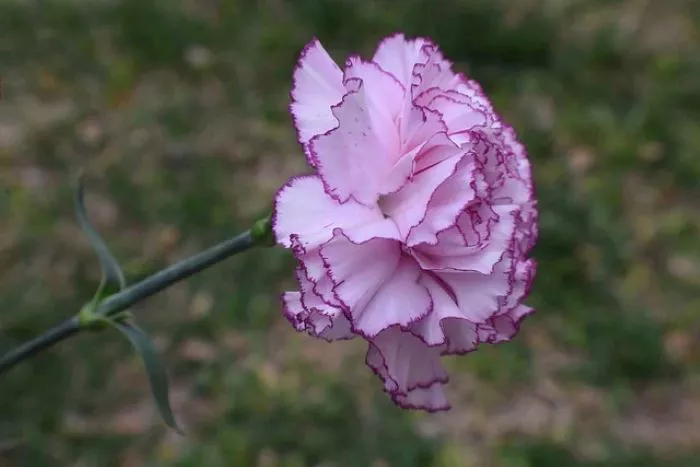Carnations are one of the most popular flowers in the world. Known for their ruffled petals and wide range of colors, they hold significant meaning in the language of flowers. This article explores the symbolism of carnations, their historical context, and their various meanings across different cultures.
Historical Context
The use of flowers to convey messages dates back centuries. The language of flowers, also known as floriography, became particularly popular in the Victorian era. During this time, people used flowers to express feelings that could not be openly stated. Carnations were among the flowers frequently used for this purpose.
The scientific name for the carnation is Dianthus caryophyllus. The name “Dianthus” means “divine flower” in Greek. This reflects the flower’s beauty and significance throughout history. Carnations have been cultivated for over 2,000 years and have ties to ancient Rome and Greece. They have also been symbols of love, fascination, and admiration in various cultures.
Symbolism of Carnations
Carnations are rich in symbolism. Each color of carnation carries its own unique meaning. Understanding these meanings can help you choose the right carnation for any occasion.
Red carnations symbolize deep love and admiration. They are often used in romantic contexts, making them a popular choice for Valentine’s Day and anniversaries. The intensity of the red color reflects strong emotions and passion.
Pink carnations are associated with a mother’s love. They are often given on Mother’s Day and other occasions to honor maternal figures. The soft pink hue conveys tenderness and affection, making them a suitable choice for expressing gratitude and love.
White carnations symbolize purity and good luck. They are often used in weddings and other celebrations. Their pristine appearance represents innocence and new beginnings, making them a fitting choice for significant life events.
Yellow carnations represent disappointment or rejection. While this may seem negative, they can also convey a message of friendship and cheerful remembrance. They are often used to express feelings of nostalgia or to remember a friend who has passed away.
Purple carnations symbolize capriciousness or unpredictability. They are less commonly used but can represent a whimsical or playful spirit. These flowers are suitable for light-hearted occasions or to convey a sense of fun.
Cultural Significance
The meaning of carnations varies across cultures. In some cultures, they are seen as symbols of love and admiration, while in others, they may represent different emotions or sentiments.
In the United States, carnations are often used in celebrations such as graduations and anniversaries. They are also the official flower of the state of Ohio and are commonly worn on lapels for various occasions.
In many European cultures, carnations are used in religious ceremonies and are often associated with the Virgin Mary. The flower is seen as a symbol of purity and virtue. In this context, white carnations are particularly significant.
In Asian cultures, the meanings of carnations can differ. In Japan, for example, they are often associated with family and are used to honor mothers. In China, they can symbolize love and admiration, similar to their meanings in Western cultures.
Uses in Floral Arrangements
Carnations are a versatile flower in floral arrangements. Their long-lasting nature and wide range of colors make them ideal for various occasions. Florists often use them in bouquets, centerpieces, and decorations.
Due to their sturdy stems and ability to last for weeks, carnations are popular for weddings and events. They can be combined with other flowers to create stunning arrangements or used alone for a classic look. Their affordability also makes them a favorite among florists and customers alike.
Conclusion
Carnations are more than just beautiful flowers. They carry deep meanings and rich symbolism in the language of flowers. Understanding the significance of different colors can enhance your ability to communicate feelings and sentiments through floral gifts.
Whether you choose red carnations to express love, pink ones to honor a mother, or white ones for purity, these flowers can convey powerful messages. Their historical significance and cultural relevance further enrich their meaning. As you consider the next bouquet you give or receive, remember the profound language that carnations speak.


